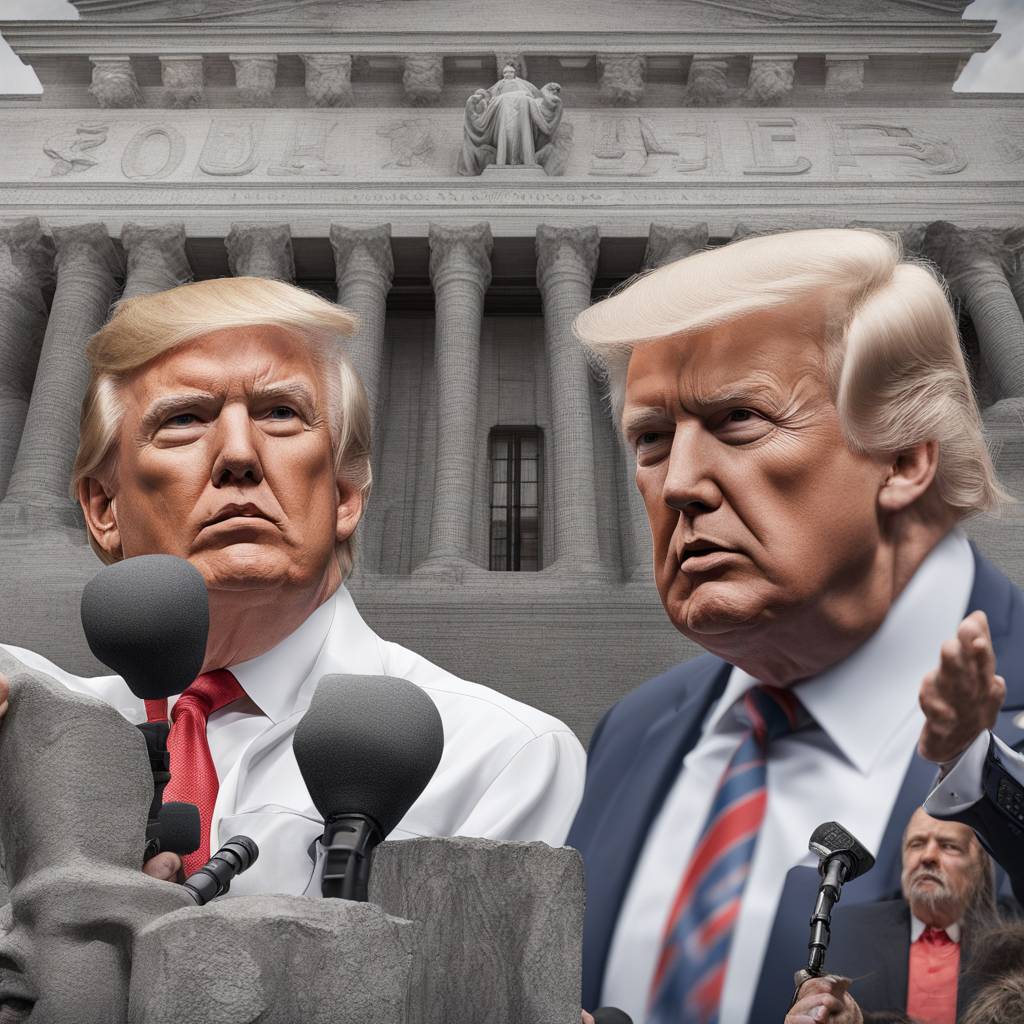Former President Donald Trump and his co-defendants are continuing to fight charges of election subversion in Georgia after a judge denied their attempt to dismiss the indictment on First Amendment grounds. They have filed a motion to appeal the ruling, arguing that their free speech rights were violated by the case that accuses them of attempting to overturn President Joe Biden’s victory in Georgia. Trump and his co-defendants have pleaded not guilty to the racketeering charges they are facing in Fulton County.
Steve Sadow, Trump’s lead defense attorney, stated that they are seeking immediate review of the court’s order denying their pretrial First Amendment challenges, as they believe the indictment criminalizes core political speech protected by the First Amendment. They argue that their speech and actions related to the 2020 Presidential Election are at the center of the case and challenge prosecutors for not specifying how their speech advanced criminal conduct outside of expressing views on the election. Judge Scott McAfee had previously ruled that only a jury could determine if Trump’s speech was carried out with criminal intent.
Fulton County District Attorney Fani Willis has filed a motion to block Trump’s appeal of McAfee’s ruling that allowed her office to remain on the case despite concerns of conflict of interest due to her romantic relationship with the lawyer managing Trump’s case. McAfee had ruled that Willis could continue leading the prosecution if the lawyer stepped aside. Free speech is not without restriction, according to McAfee, and speech integral to criminal conduct or fraud is not protected by the First Amendment. He stated that the question of criminal intent in Trump’s speech would be left to a jury to decide.
Trump and his co-defendants argue that their actions and statements related to the election are protected political speech and challenging the case is crucial for safeguarding freedom of expression in a democracy. They maintain their innocence in the charges of election subversion and believe that their arguments for dismissal fall within the almost absolute protections of the First Amendment. The legal battle in Georgia continues, with both sides preparing to present their case in court and appeal rulings that impact the outcome of the proceedings.
The case against Trump and his co-defendants highlights the intersection of free speech rights and legal consequences for actions that are deemed to undermine the electoral process. The defense argues that their intent was to express political beliefs about the 2020 Presidential Election, while the prosecution alleges that their actions constituted criminal conduct aimed at overturning the election results. The legal complexities of the case are unfolding as both sides present their arguments and seek judicial rulings that will determine the outcome of the trial.
With the appeal motion filed, the legal proceedings in Georgia are set to continue, with potential implications for the future of election subversion charges and the limits of free speech protections. Trump and his co-defendants are adamant in their defense of their actions as political speech and are pursuing avenues to challenge the charges brought against them in court. The outcome of the appeal will shed light on the legal principles governing free speech in the context of political expression and may set precedent for future cases involving similar issues of constitutional rights and criminal liability. As the legal battle unfolds, the implications for democracy and freedom of expression in the United States are at the forefront of the debate surrounding the case.








